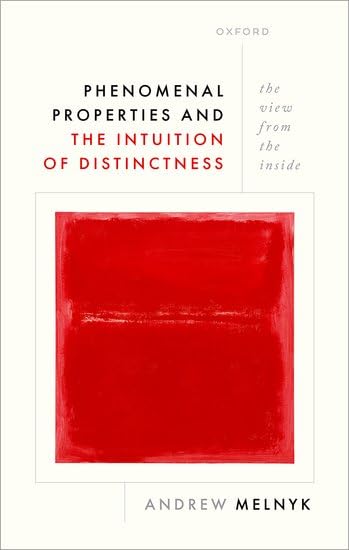New Book by Andrew Melnyk
The final publication that we'll be highlighting is a new book by Andrew Melnyk, our Director of Undergraduate Studies. Phenomenal Properties and the Intuition of Distinctness: The View from the Inside expands on the work of David Papineau, tackling how the subjective qualities of an experience, i.e., the intuition of distinctness, provide a genuine reason to reject physicalism (the idea that all things, including the mind, are physical). Phenomenal Properties and the Intuition of Distinctness is available now online, with its print release coming on March 20.
Abstract
We experience the intuition of distinctness when, for example, we attend introspectively to the phenomenal redness of a current visual sensation and it seems to us that that very property could not literally be a physical property of neural activity in a certain tiny region of our brain. The book begins by arguing that the intuition of distinctness underlies certain otherwise puzzling attitudes manifested in debates both inside and outside philosophy about whether physicalism (or materialism) can accommodate phenomenal properties (or qualia). It then argues systematically against the dualist suggestion that the intuition of distinctness gives us reason to reject the physicalist view that phenomenal properties are physical, and to adopt property dualism instead. In the course of the argument, it defends an unorthodox version of representationalism and offers positive accounts of what makes our introspective knowledge of phenomenal properties special, how introspection could tell us that an introspected property is physical, and what the subjectivity of phenomenal properties could be. Finally, after critically surveying previous attempts to account for the intuition of distinctness consistently with physicalism, it elaborates a novel explanation of the intuition of distinctness. The intuition arises because introspection is, in a certain way, conceptually encapsulated, as a result of which we are unable to do something that we can do in the case of every other kind of identity claim that we believe or entertain, and therefore unable to believe, or even to imagine believing, that an introspected phenomenal property is physical.
